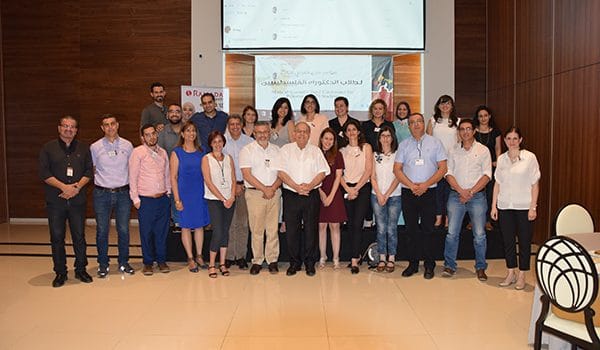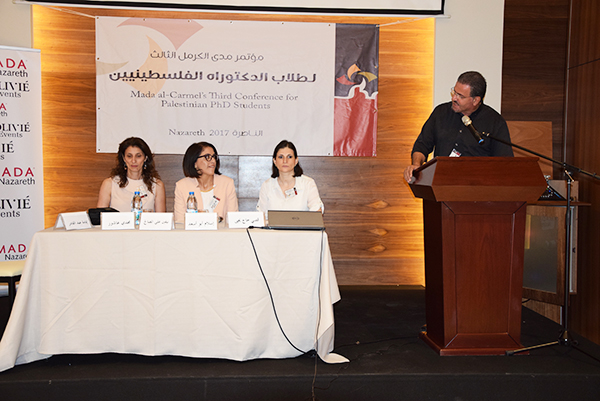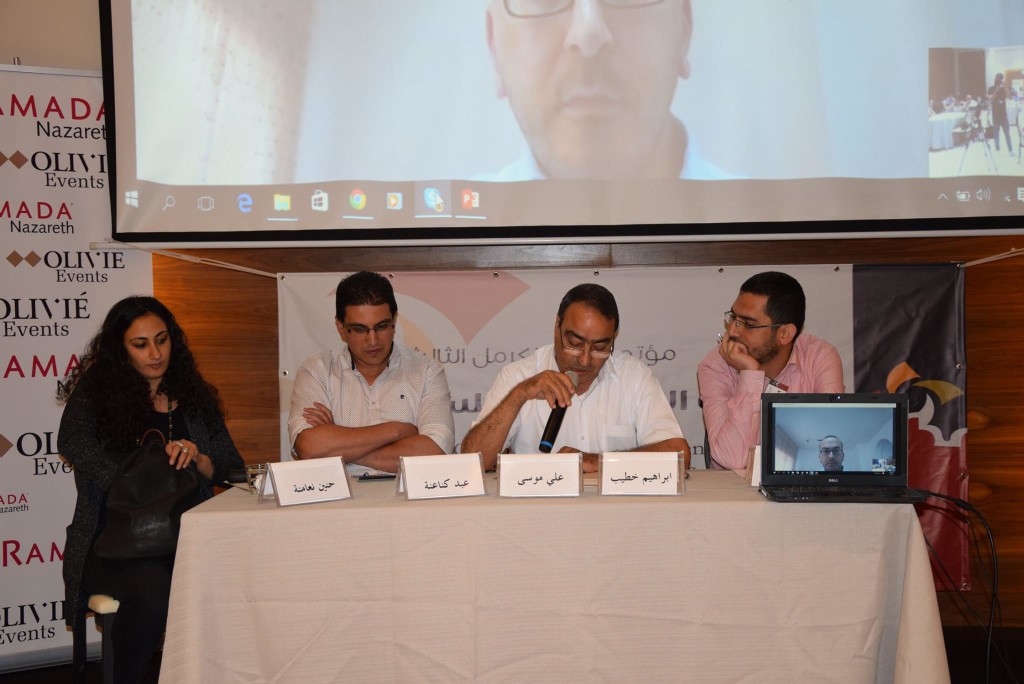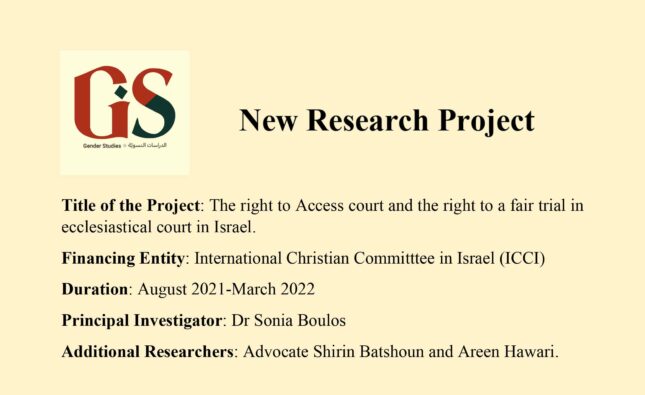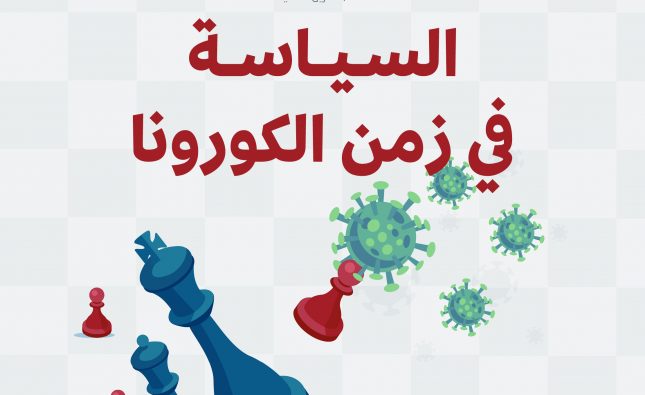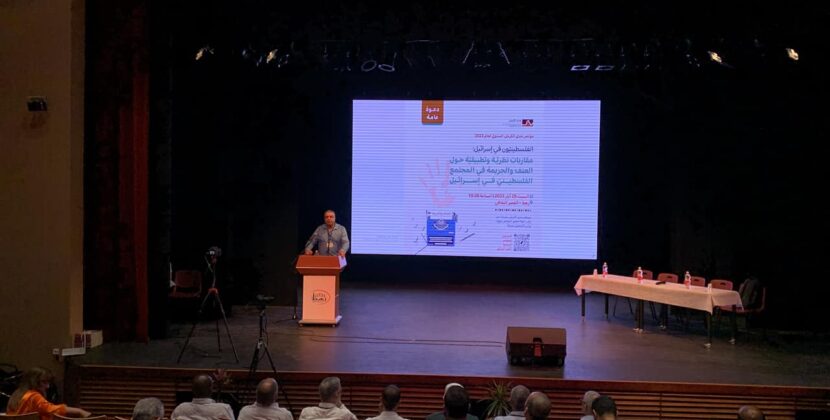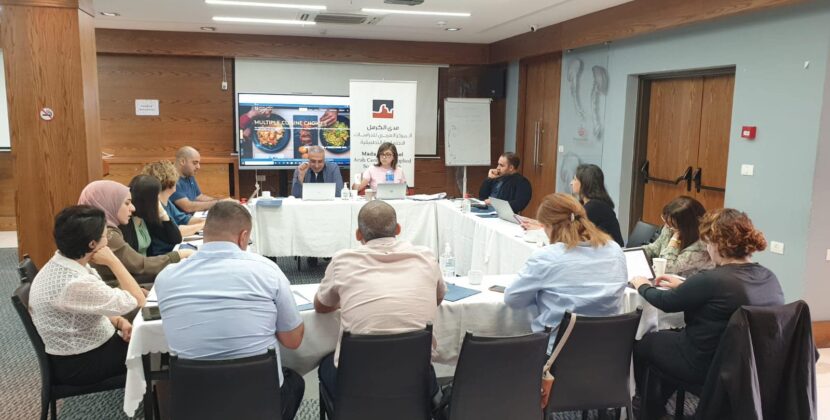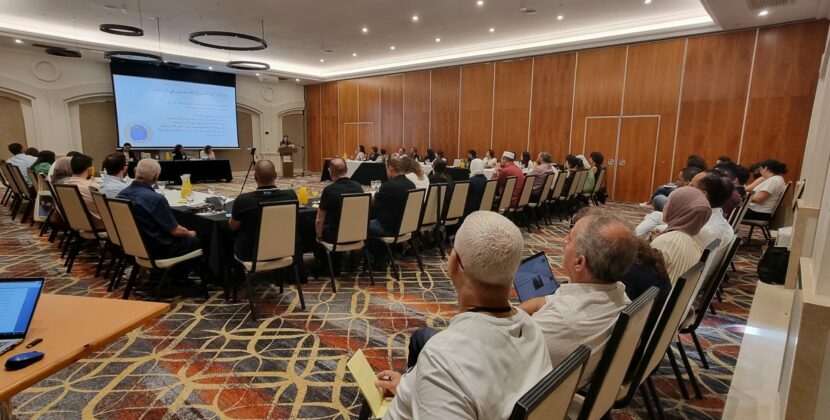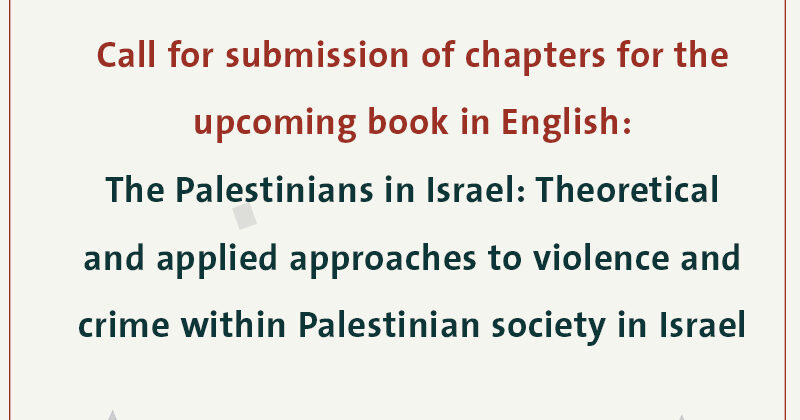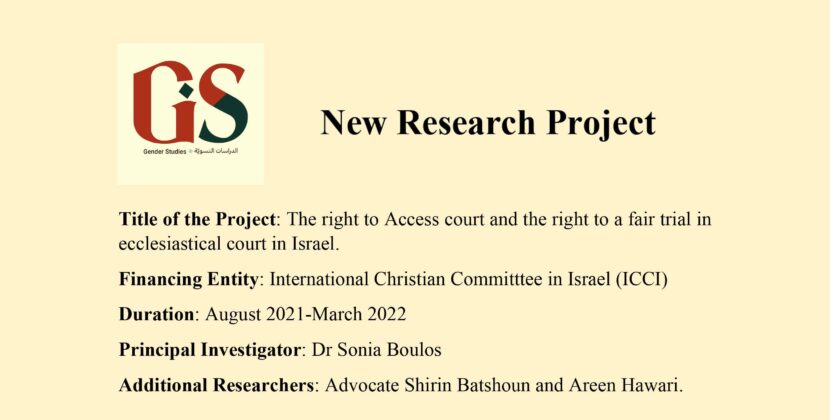Mada al-Carmel, the Arab Center for Applied Social Research, held its third conference for Palestinian PhD students early July, in which 11 Palestinian PhD students from local and foreign universities discussed their research. The conference was attended by dozens of academics, university students and interested people, amid a notable presence of female doctoral students.
The conference was opened by Mada al-Carmel’s General Director, Professor Nadim Rouhana, who welcomed the guests and the students. “This conference is one of four components of Mada al-Carmel’s project to promote graduate studies and encourage Palestinian doctoral students. Supporting graduate students is one of Mada al-Carmel’s most important goals.”
Dr. Ayman Eghbaria, a member of the conference’s academic committee and a lecturer at Haifa University, welcomed the participants and spoke about the importance of research, writing and research production after the doctoral stage.
Professor Michael Karayani, also a member of the conference’s academic committee, gave an opening lecture on “Religious pluralism as a disguise – religious minorities in Israel.” In which he presented the clear and blatant contradiction between Israel’s claim to be a liberal democracy and the religious pluralism policies it promotes in order to weaken the national identity of the Palestinians in Israel.
Dr. Qusay Haj Yahya chaired the first session of the conference entitled, “Society, Education and Violence.” In this session, Islam Abu Asaad spoke on “Professional Education Communities for Teachers: The State of Arab Education in Israel.” Neveen Ali Saleh spoke on the “Exposure of Palestinians in Israel to Communal Violence and its Implications,” and Yamama Abdelkader spoke on “Identity and Psychological Immunity of Palestinian Youth in Israel.” Speaking via Skype from the Gaza Strip, Majdi Ashour spoke on, “Beyond Flexibility in a Time of Despair: The Changes in Household Spending on Health Care in the Gaza Strip.”
Professor Nadera Shalhoub-Kevorkian chaired the second session of the conference entitled, “Rights and Gender.” In this session, Maisa Totry Fakhoury spoke on “The Local and Unwritten Laws for the Development of Spatial Structure in the Palestinian Towns in Israel.” Huzan Younis spoke on “Dreams, Capabilities and Reality: Professional Careers of Palestinian Female Academics between Challenges, Opportunities and Strategies.” The session ended with Inshirah Khoury, who spoke on “The Conditions for Development of Equality in the Marital Relationship of Arab-Palestinian Men in Israel.”
Professor Mahmoud Yazbak chaired the last session entitled, “History and Conflict.” In this session, Ibrahim Khatib spoke on the theme of “Perception of the Conflict: Democratic Values and Reconciliation.” Speaking via Skype, the student, Ali Musa from Birzeit University, spoke on “The Jordanian Rule of the West Bank: Political, Economic, and Social Dimensions.” Abed Kanaaneh then spoke on his research on “Hezbollah in Lebanon: as a Project of ‘Counter-Hegemony’” and Haneen Naamneh spoke on “The dialectic of law and history in Jerusalem after the Naksa.”
In his concluding remarks, Dr. Mohanad Mustafa, Director of research programs at Mada and a member of the conference committee, spoke about the objectives of the program and the need to support doctoral students. He said, “The aim of this conference is for Palestinian graduate students to strive to produce Palestinian knowledge that reproduces the Palestinian novelty severed since 1948, and restores respect for the Palestinian cultural field, particularly as the conference brings together young Palestinians studying in universities all over the world. The conference is an exceptional opportunity for students to present knowledge in an aberrant reality of a dispersed population, to produce Palestinian knowledge in an abnormal situation, which is a political and scientific challenge at the same time. The political challenge is to produce a Palestinian scientific and sociological field in a reality of political fragmentation, so that the cultural field of knowledge becomes the basis for the unity of the Palestinian people.”
The conference concluded with the distribution of five grants to five PhD students, during which Mada al-Carmel’s Associate Director, Einas Odeh-Haj, congratulated the attendance and doctoral students who presented their research. She commended the female attendance and the fact that the majority of the doctoral students participating in the conference were women. She then thanked the members of the Grants Committee. Odeh-Haj considered that “The grants are a small contribution from Mada to encourage the doctoral students and contribute to the production of Palestinian knowledge and culture.”
The five students receiving Mada’s grant for this year were:
1. Islam Abu Asaad, Education Department, Ben Gurion University
2. Areen Hawari, Gender Studies Department, Ben Gurion University.
3. Camillia Ibrahim, Gender Studies Department, Bar Ilan University.
4. Niveen Ali Saleh, Department of Social Work, Hebrew University of Jerusalem.
5. Wassim Ghantous, Faculty of Social Sciences, University of Guttenberg, Sweden.
.





